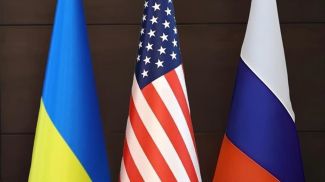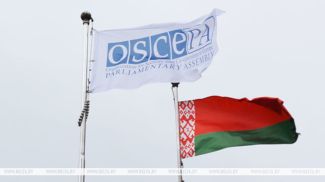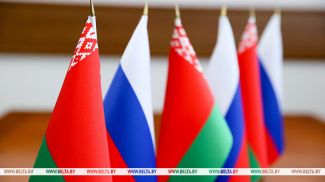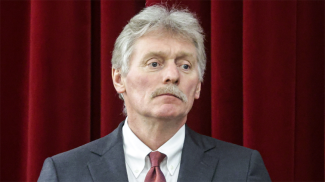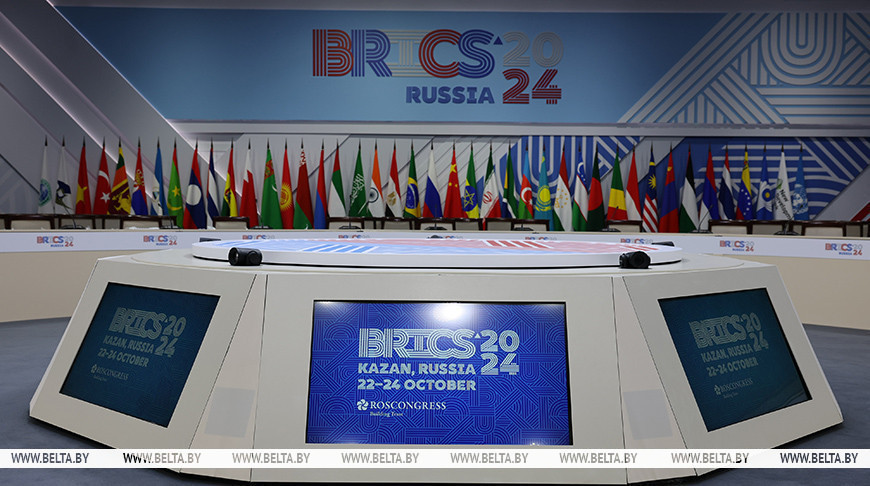
The 16th BRICS summit kicked off in Kazan, Russia. The event brought together delegations from over 30 countries and six international organizations. A number of states are represented at the highest level. Last year's summit in Johannesburg was truly a breakthrough. As a result, the number of participants in the association almost doubled. Dozens of countries have expressed their desire to join the BRICS group. This time, expectations from the summit are no less. The BRICS leaders are set to discuss politics and security, economy and finance, and cultural and humanitarian ties.
The meeting in Kazan is also closely followed in the West. However, Western media publications are mainly reduced to the already familiar narratives about the desire of BRICS to challenge the West and almost stage a world revolution. This is followed by assurances that nothing will work out for BRICS due to internal "disunity". By disunity they mean the pluralism of opinions and the desire of each of the BRICS countries to defend their national interests, which seems unthinkable for the Western world, living to the U.S. diktat.
“Can BRICS Finally Take On the West?" asks the U.S. Foreign Policy Magazine.
It calls the BRICS group global revolutionaries. “One of the more remarkable developments over the last 25 years is that an investment banker’s arbitrary acronym for a quartet of emerging market economies has become the rubric for rebellion,” Foreign Policy said.
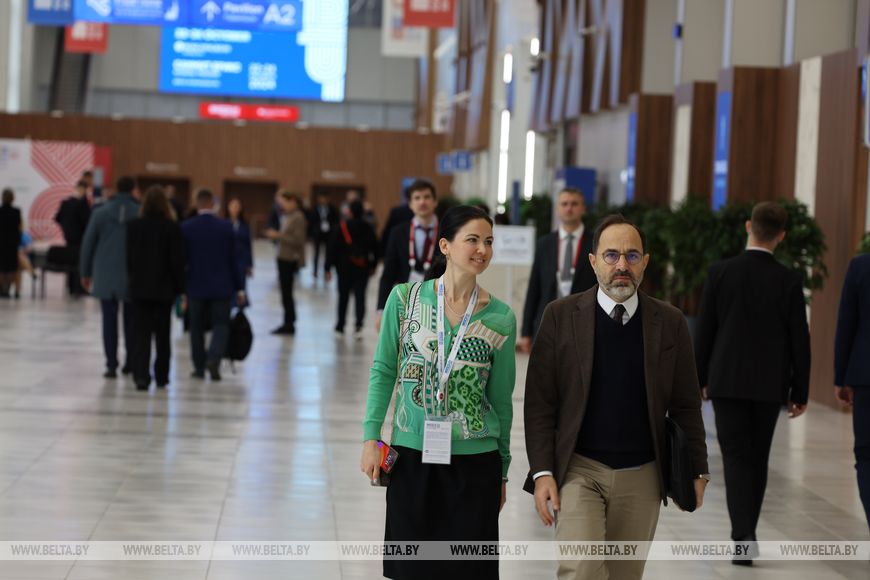
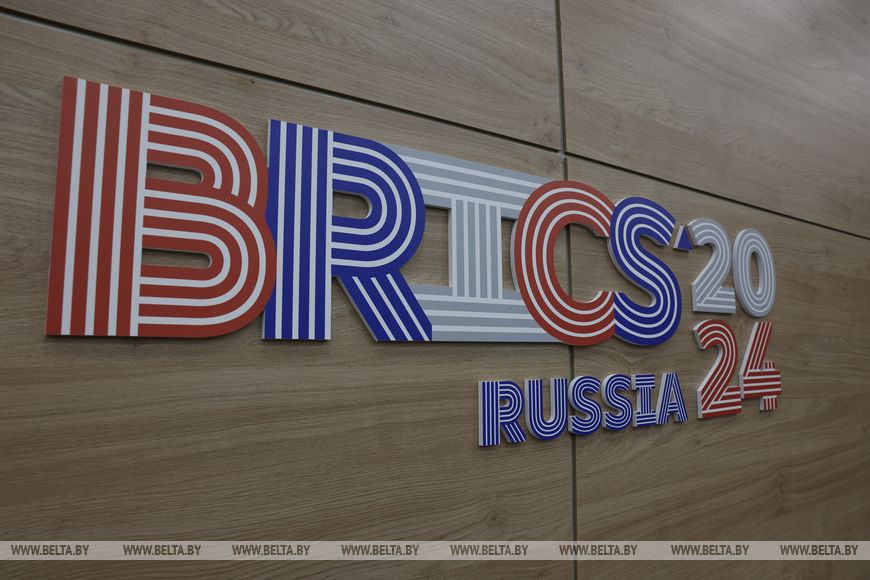
The West tends to dismiss the grouping as an incoherent grab bag. But there is a common thread - resentment of Western hypocrisy and hegemony. That has become especially evident over issues such as the conflict in the Middle East, the hyperweaponization of U.S. sanctions. “It is not a cohesive bloc, but it is a cohesive message, about the desire for an alternate global order, and it is coming from sizable economies,” Foreign Policy said.
The U.S. CNN TV channel said that “the West wants Putin isolated. A major summit he’s hosting shows he’s far from alone.”
“Set to be by far the largest international gathering the Russian president has hosted since the start of the war in February 2022, the gathering of BRICS and other countries this week spotlights a growing convergence of nations who hope to see a shift in the global balance of power and – in the case of some, like Moscow, Beijing and Tehran – directly counter the United States-led West,” CNN said.
CNN believes that it’s this latter message that the leaders of Russia and China will project in the coming days: it’s the West that stands isolated in the world with its sanctions and alliances, while a “global majority” of countries support their bid to challenge American global leadership.
Reuters reported that Ukraine's Foreign Ministry blasted U.N. Secretary General Antonio Guterres on Monday for what it said was his acceptance of an invitation from Russian President Vladimir Putin to a BRICS summit, while staying away from a "peace summit" on the war in Ukraine. Kiev called Guterres' decision "a wrong choice."
Reuters noted that a summit of BRICS nations in the central Russian city of Kazan is aimed at showcasing the clout of non-Western countries.
It also hailed the achievements of the BRICS nations. BRICS' share of global GDP is forecast to rise to 37% by the end of this decade while the G7 share will decline to about 28% from 30% this year, according to International Monetary Fund data.
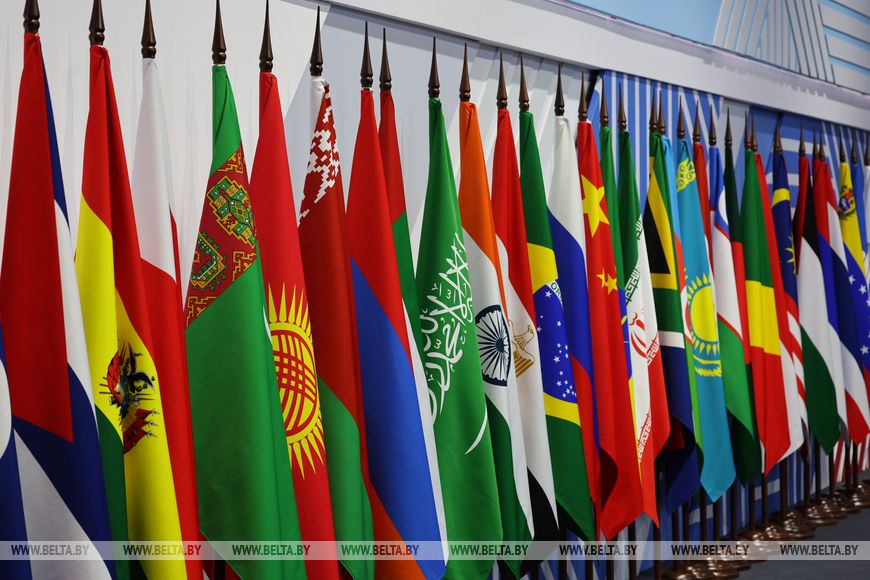
The meeting in Kazan is also closely followed in the West. However, Western media publications are mainly reduced to the already familiar narratives about the desire of BRICS to challenge the West and almost stage a world revolution. This is followed by assurances that nothing will work out for BRICS due to internal "disunity". By disunity they mean the pluralism of opinions and the desire of each of the BRICS countries to defend their national interests, which seems unthinkable for the Western world, living to the U.S. diktat.
“Can BRICS Finally Take On the West?" asks the U.S. Foreign Policy Magazine.
It calls the BRICS group global revolutionaries. “One of the more remarkable developments over the last 25 years is that an investment banker’s arbitrary acronym for a quartet of emerging market economies has become the rubric for rebellion,” Foreign Policy said.
The magazine refers to British economist Jim O'Neill, who in 2001 coined the acronym BRIC to designate the four countries with the greatest potential for economic growth at that time. It was about Brazil, Russia, India and China. Later, South Africa was added to the Big Four. And in 2023 - Iran, Egypt, Ethiopia and the UAE.


On the agenda this year will be the usual talk of creating a truly multipolar world order to challenge U.S. and Western hegemony, Foreign Policy writes. A big part of that will be efforts to come up with viable alternatives to the global dominance of the U.S. dollar.
“The expanded BRICS is indeed a diverse bunch,” the magazine said. It includes countries under the U.S. security umbrella and countries under U.S. sanctions. Prospective members could even include NATO countries such as Turkey.
“The expanded BRICS is indeed a diverse bunch,” the magazine said. It includes countries under the U.S. security umbrella and countries under U.S. sanctions. Prospective members could even include NATO countries such as Turkey.
The West tends to dismiss the grouping as an incoherent grab bag. But there is a common thread - resentment of Western hypocrisy and hegemony. That has become especially evident over issues such as the conflict in the Middle East, the hyperweaponization of U.S. sanctions. “It is not a cohesive bloc, but it is a cohesive message, about the desire for an alternate global order, and it is coming from sizable economies,” Foreign Policy said.
The U.S. CNN TV channel said that “the West wants Putin isolated. A major summit he’s hosting shows he’s far from alone.”
“Set to be by far the largest international gathering the Russian president has hosted since the start of the war in February 2022, the gathering of BRICS and other countries this week spotlights a growing convergence of nations who hope to see a shift in the global balance of power and – in the case of some, like Moscow, Beijing and Tehran – directly counter the United States-led West,” CNN said.
CNN believes that it’s this latter message that the leaders of Russia and China will project in the coming days: it’s the West that stands isolated in the world with its sanctions and alliances, while a “global majority” of countries support their bid to challenge American global leadership.
Reuters reported that Ukraine's Foreign Ministry blasted U.N. Secretary General Antonio Guterres on Monday for what it said was his acceptance of an invitation from Russian President Vladimir Putin to a BRICS summit, while staying away from a "peace summit" on the war in Ukraine. Kiev called Guterres' decision "a wrong choice."
Reuters noted that a summit of BRICS nations in the central Russian city of Kazan is aimed at showcasing the clout of non-Western countries.
It also hailed the achievements of the BRICS nations. BRICS' share of global GDP is forecast to rise to 37% by the end of this decade while the G7 share will decline to about 28% from 30% this year, according to International Monetary Fund data.

The British BBC said that “Putin gathers allies to show West's pressure isn’t working.”
“Imagine you're Vladimir Putin. The West has dubbed you a pariah for invading Ukraine. Sanctions are aiming to cut off your country's economy from global markets. And there's an arrest warrant out for you from the International Criminal Court. How can you show the pressure is not working? Try hosting a summit,” BBC journalist Steve Rosenberg said unimaginatively in his article for BBC.
“Imagine you're Vladimir Putin. The West has dubbed you a pariah for invading Ukraine. Sanctions are aiming to cut off your country's economy from global markets. And there's an arrest warrant out for you from the International Criminal Court. How can you show the pressure is not working? Try hosting a summit,” BBC journalist Steve Rosenberg said unimaginatively in his article for BBC.
According to the journalist, Putin “hopes to convince the BRICS countries” to adopt an alternative to the U.S. dollar, “being keen to ease the pressure of Western sanctions.” However, “differences within the BRICS” make it impossible to reach agreements.
“In Kazan, Vladimir Putin's task will be to skim over the differences and paint a picture of unity, while showing the Russian public – and the international community – that his country is far from being isolated,” the journalist concludes.
The French TV channel France 24 also writes about Russia's “isolation” and the challenges of Western hegemony.
“Moscow has made expanding the BRICS group a pillar of its foreign policy. The main issues on the agenda include Putin's idea for a BRICS-led payment system to rival SWIFT, an international financial network that Russian banks were cut off from in 2022, as well as the escalating conflict in the Middle East. The Kremlin has touted the gathering as a diplomatic triumph that will help it build an alliance to challenge Western ‘hegemony’,” the TV channel says.
According to France 24, the United States has dismissed the idea that BRICS could become a "geopolitical rival" but has expressed concern about Moscow flexing its ‘diplomatic muscle’. Moscow has been strengthening its ties with China, Iran and North Korea – three of Washington's adversaries.
Euronews TV channel also pays attention to the BRICS influence.
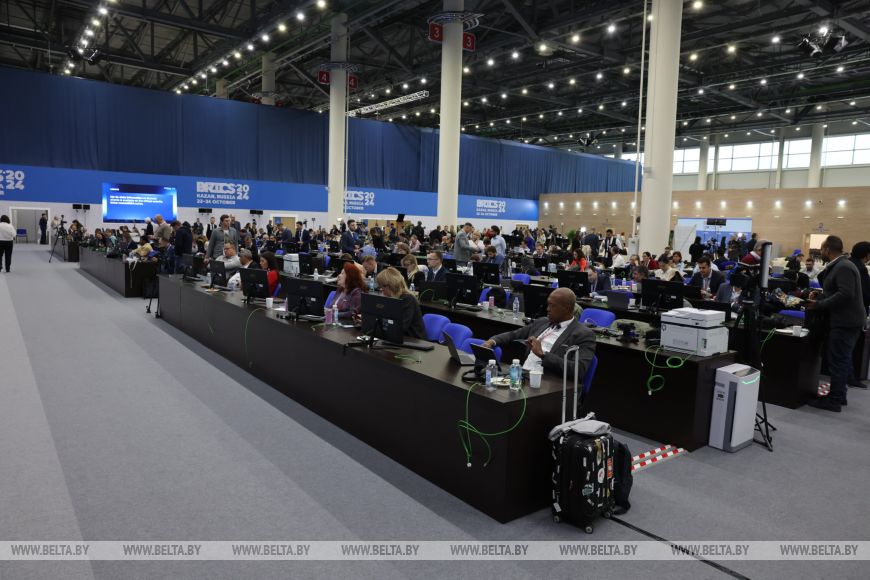
“Analysts say that it is important for the Kremlin to show that Russia is standing alongside global allies despite tensions with the West. There is also a practicality factor to the event - making deals to bolster Russia's economy ... For other participants, the summit presents an opportunity to boost their narratives on the global stage,” the TV channel says.
Euronews notes that one of the key participants in the current BRICS summit is Türkiye, which has applied to join the association. At the same time, Türkiye is a member of NATO and a candidate for membership in the European Union. But this country is becoming increasingly disillusioned with the West. Thus, negotiations on Türkiye’s accession to the EU have been deadlocked since 2016. In addition, Ankara accuses the U.S. and other Western allies of complicity in Israel's military actions in Gaza.
BRICS membership will help Türkiye strengthen its positions. At the same time, Ankara's relations with the West are at a low level, the TV channel reports.
Bloomberg agency notes that Indian Prime Minister Narendra Modi at the BRICS summit shows a desire to strengthen ties with Russia, which irritates the USA.
“India’s friendship with Russia has increasingly irritated U.S. President Joe Biden’s administration,” the agency notes.
The USA’s ability to pressure India is limited by Washington’s competing strategic priority of nurturing closer ties with the country as a counterweight to China in Asia, Bloomberg says.
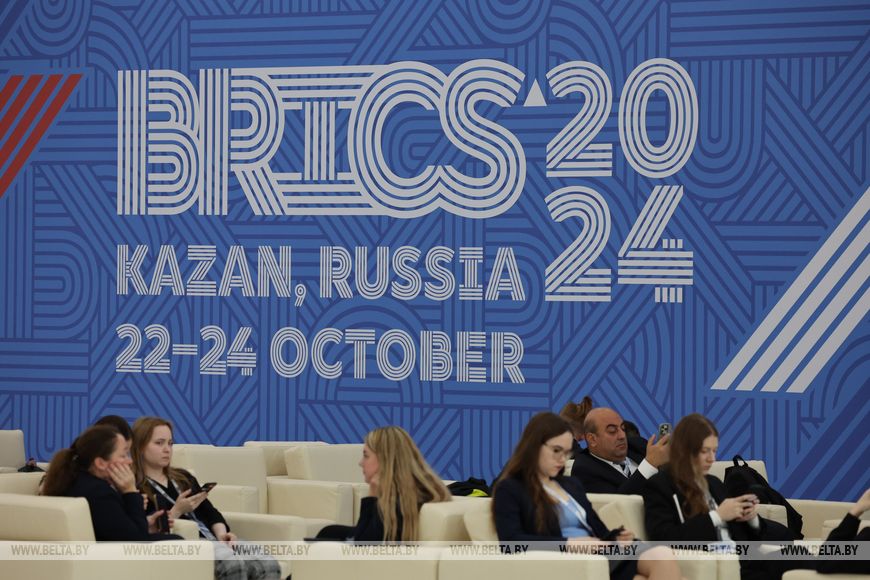
Germany’s Business Insider writes that Russia has many allies, and the BRICS summit confirmed this.
“Since the start of the conflict in Ukraine, the West has tried to weaken Vladimir Putin economically and isolate him politically. While the poison of sanctions is working, there are few signs of Russia's isolation. The fact that Putin has plenty of allies he can count on became evident this week when BRICS leaders traveled to a summit in Kazan,” the publication writes.
Business Insider believes that today BRICS wants to become “a counterweight and adversary to the West”. While the G7 is dominated by the U.S. and the EU, the BRICS group is dominated by China and Russia.
“BRICS has morphed into a geopolitical forum for the world’s most powerful nations outside of — and, importantly, challenging — the Western world,” CNBC TV channel says.
The BRICS now have additional clout after Egypt, Ethiopia, Iran and the United Arab Emirates joined the group in January, with membership to the bloc becoming an attractive prospect for countries looking to boost trade, investment and economic development,” the TV channel says.
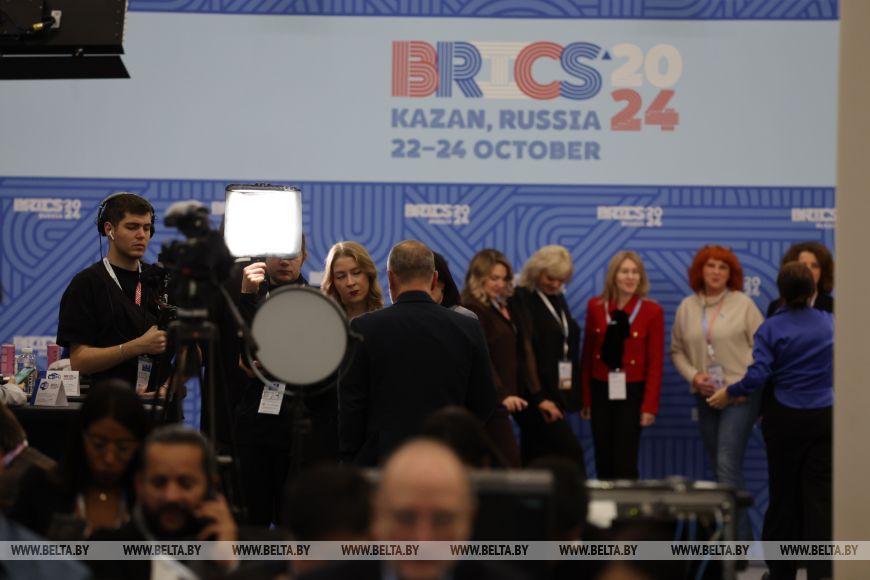
The expansion of the BRICS coalition is both significant and performative. “It is indicative of a collective movement away from the West, a demonstration of a fundamental shift within the world order that is seeking to challenge Western economic hegemony,” Callum Fraser, a research fellow in Russian and Eurasian security at the Royal United Services Institute (RUSI) think tank, told CNBC.
However, Fraser admits that BRICS is only anti-West in that it operates as an alternative institution.
Vita Khanatayeva, photos by Maksim Guchek
BelTA
“In Kazan, Vladimir Putin's task will be to skim over the differences and paint a picture of unity, while showing the Russian public – and the international community – that his country is far from being isolated,” the journalist concludes.
The French TV channel France 24 also writes about Russia's “isolation” and the challenges of Western hegemony.
“Moscow has made expanding the BRICS group a pillar of its foreign policy. The main issues on the agenda include Putin's idea for a BRICS-led payment system to rival SWIFT, an international financial network that Russian banks were cut off from in 2022, as well as the escalating conflict in the Middle East. The Kremlin has touted the gathering as a diplomatic triumph that will help it build an alliance to challenge Western ‘hegemony’,” the TV channel says.
According to France 24, the United States has dismissed the idea that BRICS could become a "geopolitical rival" but has expressed concern about Moscow flexing its ‘diplomatic muscle’. Moscow has been strengthening its ties with China, Iran and North Korea – three of Washington's adversaries.
Euronews TV channel also pays attention to the BRICS influence.

“Analysts say that it is important for the Kremlin to show that Russia is standing alongside global allies despite tensions with the West. There is also a practicality factor to the event - making deals to bolster Russia's economy ... For other participants, the summit presents an opportunity to boost their narratives on the global stage,” the TV channel says.
Euronews notes that one of the key participants in the current BRICS summit is Türkiye, which has applied to join the association. At the same time, Türkiye is a member of NATO and a candidate for membership in the European Union. But this country is becoming increasingly disillusioned with the West. Thus, negotiations on Türkiye’s accession to the EU have been deadlocked since 2016. In addition, Ankara accuses the U.S. and other Western allies of complicity in Israel's military actions in Gaza.
BRICS membership will help Türkiye strengthen its positions. At the same time, Ankara's relations with the West are at a low level, the TV channel reports.
Bloomberg agency notes that Indian Prime Minister Narendra Modi at the BRICS summit shows a desire to strengthen ties with Russia, which irritates the USA.
“India’s friendship with Russia has increasingly irritated U.S. President Joe Biden’s administration,” the agency notes.
The USA’s ability to pressure India is limited by Washington’s competing strategic priority of nurturing closer ties with the country as a counterweight to China in Asia, Bloomberg says.
Germany’s Business Insider writes that Russia has many allies, and the BRICS summit confirmed this.
“Since the start of the conflict in Ukraine, the West has tried to weaken Vladimir Putin economically and isolate him politically. While the poison of sanctions is working, there are few signs of Russia's isolation. The fact that Putin has plenty of allies he can count on became evident this week when BRICS leaders traveled to a summit in Kazan,” the publication writes.
Business Insider believes that today BRICS wants to become “a counterweight and adversary to the West”. While the G7 is dominated by the U.S. and the EU, the BRICS group is dominated by China and Russia.
“BRICS has morphed into a geopolitical forum for the world’s most powerful nations outside of — and, importantly, challenging — the Western world,” CNBC TV channel says.
The BRICS now have additional clout after Egypt, Ethiopia, Iran and the United Arab Emirates joined the group in January, with membership to the bloc becoming an attractive prospect for countries looking to boost trade, investment and economic development,” the TV channel says.

The expansion of the BRICS coalition is both significant and performative. “It is indicative of a collective movement away from the West, a demonstration of a fundamental shift within the world order that is seeking to challenge Western economic hegemony,” Callum Fraser, a research fellow in Russian and Eurasian security at the Royal United Services Institute (RUSI) think tank, told CNBC.
However, Fraser admits that BRICS is only anti-West in that it operates as an alternative institution.
Vita Khanatayeva, photos by Maksim Guchek
BelTA




